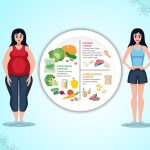As high-performance athletes, your diet plays a crucial role in fueling your workouts, optimizing
recovery, and enhancing overall performance. Whether you’re a swimmer, bodybuilder, or any other athlete, understanding the right nutrition strategies is essential. Let’s dive into the best practices for designing an athlete-friendly diet.
1. Calculate Your Energy Needs
Before creating a meal plan, determine your daily energy requirements. Consider three scenarios:
• Maintain Weight: To maintain your current weight, consume the same number of calories
you burn daily. For instance, if your average daily energy expenditure is 3000 calories, aim to
eat around 3000 calories per day.
• Lose Weight: If weight loss is your goal, create a calorie deficit by consuming fewer calories
than you expend. Gradual weight loss (1–2 pounds per week) is sustainable and healthier.
• Gain Weight: Athletes aiming to build muscle or increase strength need a calorie surplus.
Consume more calories than you burn to support growth and recovery.
2. Focus on Macronutrients
Balance your macronutrients to optimize performance:
• Protein: Essential for muscle repair and growth. Include lean protein sources like chicken,
turkey, eggs, beans, and low-fat dairy.
• Carbohydrates: Provide sustained energy. Opt for complex carbs from whole grains, fruits,
and starchy vegetables. Avoid excessive simple sugars.
• Fats: Healthy fats support overall health. Include avocados, nuts, seeds, and fatty fish.
3. Hydration Matters
Stay hydrated! Proper fluid intake enhances performance, aids digestion, and prevents fatigue. Water is your best choice, but sports drinks with minimal caffeine can be useful during intense workouts.
4. Pre-Workout Nutrition
Fuel up before training:
• Timing: Consume a balanced meal 1–2 hours before exercise.
• Carbs: Prioritize easily digestible carbs (e.g., oatmeal, bananas).
• Protein: Include a small serving of lean protein.
• Hydration: Drink water to stay hydrated.
5. Post-Workout Recovery
Recovery is crucial for progress:
• Protein: Within 30 minutes post-workout, consume protein to repair muscle tissue.
• Carbs: Pair protein with carbs (e.g., a turkey sandwich) to replenish glycogen stores.
• Hydration: Rehydrate with water or a sports drink.
6. Snack Smartly
Choose nutrient-dense snacks:
• Salty Foods: Pretzels, trail mix, or whole-grain crackers provide sodium lost through sweat.
• Fruits and Veggies: Colorful fruits and veggies offer vitamins, minerals, and antioxidants.
• Fluids: Stay hydrated throughout the day.
7. Supplements (When Necessary)
While whole foods are best, some athletes benefit from supplements:
• Protein Powder: Convenient for post-workout recovery.
• Creatine: Enhances strength and power.
• Vitamin D: Supports bone health.
Remember, individual needs vary. Consult a qualified dietitian or sports nutritionist to tailor your diet to your specific sport, goals, and preferences.
By cracking the code on nutrition, you’ll unlock your full athletic potential. Train hard, eat smart, and conquer your goals! 🏋️♂️🥗🏊♀️
Related Posts
Nothing found!
It looks like nothing was found here!



